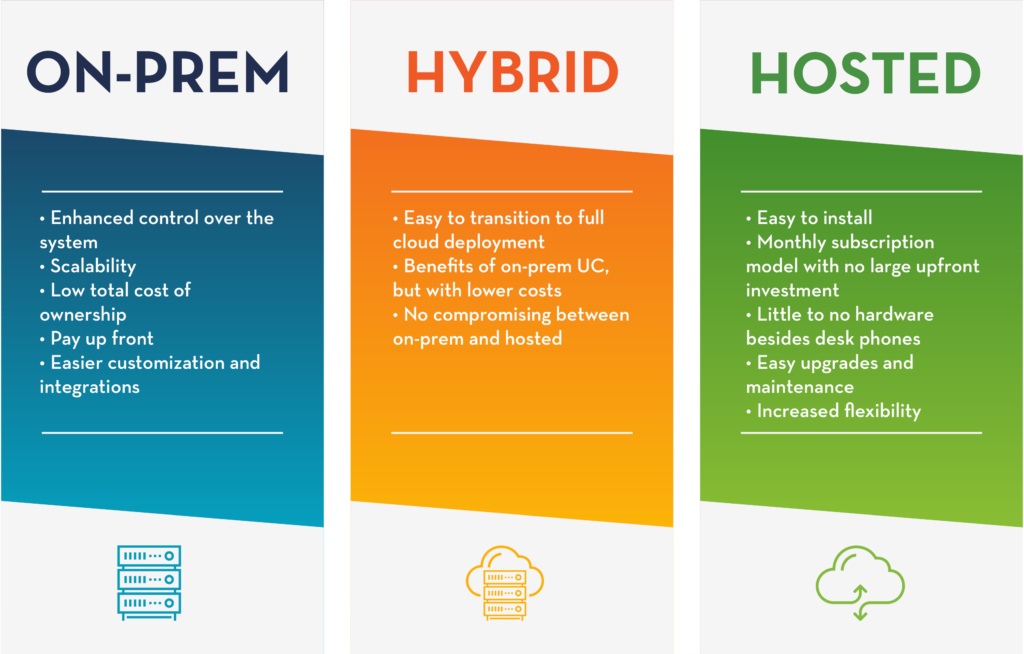What is unified communications?
Unified communications is a set of products that integrates all enterprise communication services like instant messaging, presence information, voice, mobility, audio, web & video conferencing, desktop & data sharing, call control ,and speech recognition with non-real-time communication services such as voicemail, email, SMS, and fax. This provides a consistent user interface and experience for varied media types across all devices.
Now what does that actually mean?
Unified communications streamlines the way your company does business. By combining the programs/apps/devices you already use to communicate (phone, IM, email, voicemail) into a single, integrated platform. This means that you don’t need to be at your desk to receive a voicemail because voicemails get sent to your inbox, and your inbox, by the way, can be accessed from anywhere at any time on your mobile device. Need to collaborate with a coworker? You can easily see when they’re available in just a few quick steps. Combining the ways your business communicates, results in faster interactions, more collaboration, quicker response times, and ultimately better customer service.
However, like most things in the tech world, you have lots of options which may seem overwhelming at first.
What are the options?
ON-PREMISES
On-prem solutions are physically deployed at your location. They often require a large investment up front to purchase and install all the necessary hardware and equipment. You may want an on-prem solution if you are in an industry with rigorous compliance standards, have a lot of employees, or a large IT budget.
HOSTED
Hosted, or cloud based, solutions are deployed in an off-site data center and connected to your office via the internet. You may want a hosted solution if you are a SMB that craves a modern, yet simpler UC offering. Implementation costs are low, but keep in mind that your monthly investment will increase as your employee numbers do.
HYBRID
Hybrid solutions, a combination of both on-prem and hosted deployments, can give you the best of both worlds. Say you have a large corporate headquarters and smaller, individual offices. An on-premise solution would be perfect for the HQ since the complexity of needs is greater (advanced call routing, integrations, etc.). Those smaller, remote locations probably don’t need quite as many bells and whistles which means you can choose a hosted solution to meet your needs without having to pay up front for all the necessary hardware for each off-site location.
Unfortunately there isn’t any one size fits all choice. Ultimately, it’s important to truly assess your business needs. Consider the size, budget, compliance requirements, and number of offices for your individual company. Armed with this information, we can help guide you in the right direction when choosing a deployment type that is best suited for your unique business needs.


